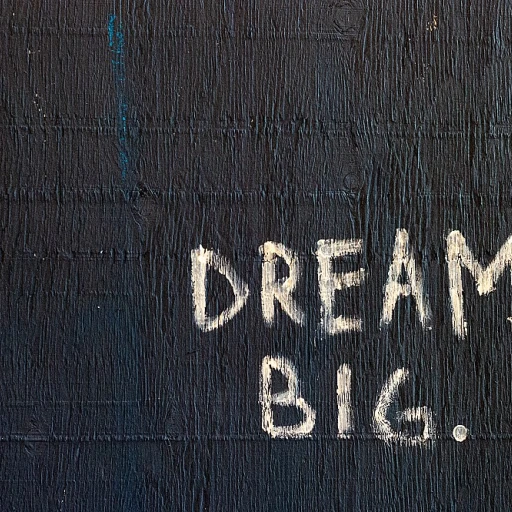Understanding the Concept of Jenga Questions
Exploring the Dynamics of Play in the Workplace
When you think of team-building activities, your mind might conjure images of ropes courses or trust falls. However, the mechanics of a block game like Jenga can offer an understated yet powerful medium for engagement. The concept of Jenga questions involves more than mere playful distraction; it taps into the intrinsic qualities of the game to foster open communication among employees. Jenga questions leverage the balance and strategizing skills demanded by the game, injecting moments of both tension and relief into the workplace. The physical act of removing blocks from a tumbling tower mirrors the delicate dance of workplace interactions—every move has consequences. Introducing such a familiar family game into the corporate environment subverts traditional communication, paving the way for a more natural exchange of ideas. ### A Game Night with a Purpose Hypothetically, a game night using a Jenga game can seem like child's play, but when integrated purposefully, it becomes a tool—a facilitator of stories and connections. As employees make moves, they're prompted to answer questions. These aren't trivializing; they're genuine conversation starters. This fosters a small, yet profoundly close, group dynamic reminiscent of lively family game nights or intimate high school hangouts. ### The Implicit Value in Simplicity The Jenga game’s simplicity does not undercut its effectiveness in workplace settings. Much like the affordability of the game with its original price on Amazon, the low-cost nature does not undermine its value. Whether used as therapy Jenga for overcoming communication barriers or as a fun addition to a team building board game session, it has stood the test of years as a favorite among different age groups, including kids and adults alike. Many organizations striving for employee engagement must reconcile with the fact that sometimes, the simplest products—like this blocks game—can accomplish the most. It's an exercise in real-world problem-solving, where employees dynamically balance caution with ambition, much like they would in their daily tasks. This strategy can therefore be a game changer for those looking to boost team spirit in remote work.The Role of Jenga Questions in Enhancing Communication
Enhancing Communication Through Engaging Queries
Jenga questions can be a transformative tool in enhancing communication within teams. The playful nature of the game invites participants to relax and open up, making it easier for everyone to share thoughts and insights in a non-intimidating atmosphere. This can be particularly valuable during team meetings, fostering a more inclusive and candid environment.
The structure of the Jenga blocks game, where each block is carefully pulled from a tumbling tower, can be likened to the process of building communication. Each question answered becomes a stepping stone towards greater mutual understanding. Integrating these questions as conversation starters encourages everyone in the group to participate actively, thus improving the flow of communication.
With each block removed and a question asked, team members have the opportunity to answer questions that they might not otherwise discuss in a regular meeting setting. This activity naturally eliminates any hierarchical barriers, allowing for a free exchange of ideas and thoughts.
Whether it’s discussed over a game night or during team building exercises, introducing a mix of fun and structured dialogue becomes a game changer. Jenga questions can act as a catalyst for interaction, leading to more engaged, communicative teams. Moreover, the game’s versatility—from a family game night to a therapy session—demonstrates its broad applicability and effectiveness.
For those looking to improve communication and team engagement, incorporating a Jenga game with questions can set the stage for significant enhancement. To explore further ways to build communication in a fun and engaging manner, you can explore how remote work settings can benefit from game-like interactions in the boosting team spirit article.
Building Trust Through Playful Interaction
Fostering Trust and Collaboration with Engaging Play
Jenga questions are not just a fun game to break the ice; they play a critical role in building trust within a team. When employees engage in activities like a Jenga game, they are not only participating in game fun but also in a unique form of team building. The tumbling tower experience requires participants to safely remove the blocks without causing a spill, prompting careful thinking and cooperation.
This popular family game, often enjoyed during game night, can translate into an effective tool for the workplace. The involvement in pulling and stacking Jenga blocks becomes a hands-on metaphor for the strategic balance needed in professional environments. As each team member gets a turn, they interact with questions Jenga— serving as powerful conversation starters. This format encourages open communication, supporting the development of stronger personal relationships.
The playful nature of the blocks game provides an informal environment where employees feel comfortable sharing thoughts and experiences. By answering questions like "What is your favorite memory from high school?" or "What is one small action that can make your day better?" colleagues discover shared interests and values. Such engagement aids in dispelling barriers that might exist in more formal settings.
Interestingly, this small yet impactful activity can cater to diverse groups— from students to senior professionals— supporting long-term employee morale. By maintaining regular interaction through Jenga questions, trust is continuously nurtured, paving the way for enhanced teamwork and collective success.
Incorporating Jenga Questions into Team Meetings
Integrating Jenga Questions into Team Dynamics
Incorporating Jenga questions into team meetings can transform a routine gathering into a dynamic and engaging session. The game itself, with its familiar tower of blocks, serves as a perfect metaphor for team building, where each block represents a piece of communication or trust that holds the team together.
Start by introducing the Jenga game as a fun and interactive way to kick off your meetings. You can use it as a conversation starter to break the ice. Each block can have a question written on it, which participants must answer when they pull it from the tower. This not only adds an element of surprise but also encourages team members to share insights and personal stories.
Why Jenga Questions Work
Jenga questions can be tailored to suit the needs of your team. Whether you're working with high school students, kids, or a corporate team, the questions can be adjusted to fit the audience. The key is to keep them engaging and relevant. For instance, you might include questions about recent projects, personal achievements, or even fun topics like favorite family game night ideas.
Additionally, the physical act of playing a board game like Jenga encourages a small break from the usual meeting format, making it easier for participants to relax and open up. This playful interaction can lead to deeper connections and improved communication, as discussed in previous sections.
Practical Tips for Implementation
- Set a specific time during the meeting for the Jenga session to ensure it doesn't overrun the agenda.
- Choose questions that align with the meeting's objectives, whether they are to foster creativity, solve problems, or simply get to know each other better.
- Encourage everyone to participate, ensuring that the game remains inclusive and engaging for all.
By incorporating Jenga questions into your team meetings, you not only enhance communication but also build a culture of trust and openness. This approach, while seemingly simple, can have a profound impact on employee morale and engagement over time.
Measuring the Impact of Jenga Questions on Employee Morale
Evaluating the Effects on Team Spirits
Measuring the impact of Jenga Questions on employee morale is as crucial as incorporating them into team meetings. While the thrill of stacking those wooden blocks might remind one of a fun family game night, its profound effect on building professional relationships should not be underestimated. Here are some key indicators to measure success:- Team Feedback: Engaging with your team is essential. After a few sessions, ask for their thoughts. Were the Jenga Questions fun and thought-provoking? Did they help alleviate work stress?
- Observation of Interaction: Keeping an eye on how your team interacts during this game can provide a wealth of information. Are participants more open to sharing? Do they laugh and enjoy the session? A noticeable positive shift is a clear sign of improved morale.
- Performance Metrics: Although blocks tumbling down a tower might seem more aligned with high school or kids' games, in a corporate setting, improved communication and trust can translate into better performance indicators. When employee engagement rises, it often reflects positively in productivity metrics.
- Team Cohesion: Post-game evaluations can also focus on how collaborative efforts have shifted. Are team members more willing to collaborate after these sessions? Has the spirit of cooperation improved?
Overcoming Challenges with Jenga Questions
Tackling Misunderstandings and Fear
Incorporating Jenga questions into the corporate environment can be exciting, but it comes with its own set of challenges. It's not uncommon for employees to initially feel uneasy about mixing a familiar family game or kids' game like the Jenga game with professional settings. There might be a perception that these games are not serious enough for the workplace.
To address this, it's crucial to communicate the Jenga questions purpose clearly. Highlighting how these blocks game can enhance communication and team building can help shift perspectives. Provide examples of past successes where other organizations have utilized game jenga to bolster employee engagement. It's also important to remind everyone that, while it's a fun activity, it serves a greater purpose for the team's cohesiveness.
Managing Participation Levels
Participation can be another challenge. Not everyone might be eager to jump into game night activities that initially appear light-hearted. Encourage everyone to get involved by aligning questions jenga with ongoing projects or include conversation starters that are relevant. Emphasizing the value of building blocks through questions allows individuals to express themselves in ways that might not come up in standard meetings.
Adjusting the difficulty of questions can also help in managing participation, making sure they're suitable for various comfort levels. Start with small questions to ease in more reserved team members, eventually building up to fuller participation. This gradual approach helps in acclimating even the most introverted members to the activity, transforming skepticism into enthusiasm.
Addressing Space and Resource Limitations
Physical space and resource limitations might be a hurdle as well. Not every office has a dedicated area for playing board games. Finding creative ways to host a tumbling tower session, whether through a virtual format using digital blocks or during a team outing, can circumvent these spatial constraints. If the original price of a Jenga product is a concern, consider Amazon for more affordable options or explore alternatives in generic versions available for schools and students.
Ensure that any talk around resource usage highlights the gains in team cohesion as an investment, not a cost. Tie this into broader discussions on the value of team collaboration activities and the long-term benefits for organizational culture.








